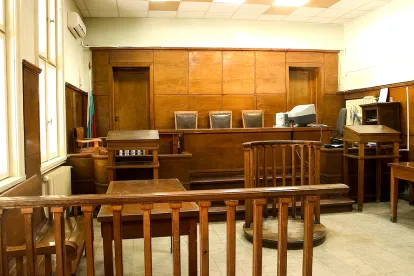The world’s courts and judicial systems are reacting to the outbreak of the Coronavirus (COVID-19) in widely varied ways, presenting litigants with a confusing morass of conflicting situations and advice. In some jurisdictions, litigation has essentially halted: the courts are closed, limitation and prescription periods are frozen, and times for appeal have been extended generally. In other jurisdictions, the courts remain more or less open (albeit with most or all hearings conducted remotely) and time continues to run.
In the latter scenario, individual jurisdictions have approached the adjournment of hearings so that they might be conducted remotely in different and changing ways. There are myriad slips as well, as, for example, individual courts or judges may not legally have it in their gift to extend limitation periods or stay execution over some matters. In England and Wales, parties to litigation have had to adapt to new practices, as the English Courts have taken steps to ensure progress in legal proceedings in light of the COVID-19 pandemic.
IN DEPTH
HM Courts & Tribunals Services provides weekly operational updates as to the functioning of the English Courts. The Lord Chief Justice announced on 20 March 2020 that the default position is that hearings should be conducted remotely if possible, highlighting that the Civil Procedure Rules (CPR) provide for considerable flexibility in this regard.
A new Practice Direction 51Y was introduced on 25 March 2020 to facilitate the move to remote hearings during the COVID-19 pandemic. PD 51Y allows the court to order a hearing to be held in private if it is not practicable to allow public access. Hearings should, however, be recorded and the recording made available on request to the public, in the interest of continuing to promote the key principle of open justice (Coronavirus Act 2020).
The courts have also shown increased flexibility regarding court deadlines. A new Practice Direction 51ZA, published on 2 April 2020, allows parties to agree extensions of time for up to 56 days (compared to the 28-day extension permitted under the CPR). Any further extension requires an application to the court, which will be considered on paper. The Practice Direction states that “in so far as compatible with the proper administration of justice, the court will take into account the impact of the Covid-19 pandemic when considering applications for the extension of time for compliance with directions, the adjournment of hearings, and applications for relief from sanctions”. Such an order was granted in the case of O’Driscoll v FIVE Bianchi S.p.A [2020], and we would expect this to become a regular feature of cases pending official guidance clarifying the position.
It is also important to note that, although limitation periods have been suspended in many jurisdictions across the world, HM Courts & Tribunal Services has not indicated anything to suggest that limitation periods would automatically be suspended or extended in England and Wales. Significantly, and likely causative of the English position on limitation and prescription periods, service does not have to be effected personally but can be generally effected by mail. Moreover, e-filing is commonplace and mandatory in some English courts.
The Current Situation
In the early stages of the pandemic, many parties assumed that hearings would be adjourned until the crisis had subsided. In England there is no option of trials “on the paper”: Conversant Licensing v Huawei Technologies [2020]. Litigants and judges were initially averse to remote, electronically facilitated trials. It has now become clear, however, that the higher courts do not view the option of perpetually adjourning hearings as a realistic option, as the current situation may be longstanding and re-listing all cases would lead to excessively long delays.
Litigants and their counsel should be aware that remote electronically facilitated hearings are now the norm, and they must be prepared to proceed on that basis. Although very short adjournments were allowed early in the lockdown to permit arrangements to be made for a remote hearing (e.g., National Bank of Kazakhstan v The Bank of New York Mellon [2020]), parties are less likely to be allowed such time now.
The case of Hyde and Murphy v Nygate and Rayment [2020] saw the judge refuse the claimant’s application to adjourn a five-week trial, listed for June 2020. The judge rejected the claimant’s argument that logistical issues would arise as a result of the lockdown on the basis that:
-
It was not contrary to government advice for hearings to go ahead. The judge referred to the various legislation and guidance issued by the government in response to the COVID-19 pandemic and held that those materials indicate that as many hearings as possible should continue and they should do so remotely as long as that can be done safely.
-
Technology is capable of delivering a remote trial of this complexity. The judge noted that several trials had already been concluded successfully.
-
The risk of procedural unfairness was one that affected both sides equally, but the parties here were both well resourced and well placed to manage a remote trial.
This decision is likely to be referred to in future COVID-19 adjournment applications or those relating to remote hearings.
A Fast-Changing Picture
Much of the guidance published by the courts since the beginning of the COVID-19 pandemic has already been updated or replaced. As the situation and government advice change, so will the response of the courts. As a result, all parties in the midst of court proceedings should ensure that they stay up to date with the various pieces of guidance issued by HM Courts & Tribunals Services.
*Justine Wadhera (Trainee) contributed to this article.




 />i
/>i

